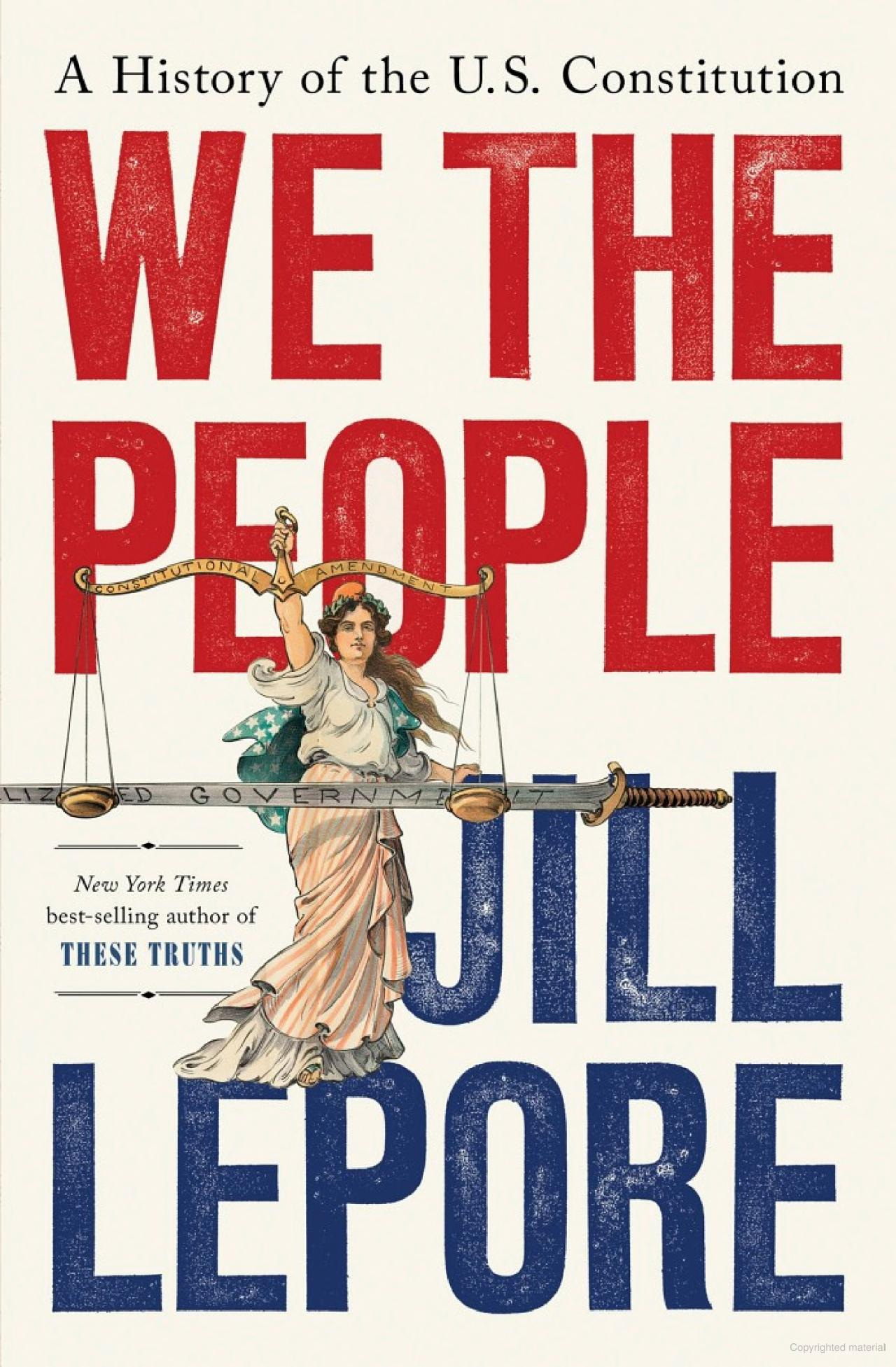Who killed the Constitution?
Historian Jill Lepore's "We the People" is a chronicle of the document that defines America -- and may stand in the way of its future
The U.S. Constitution guarantees our rights — but is that guarantee still good? How far has the Trump administration gone in ignoring constitutional restraints, and is there a way back? Is the Constitution “dead” — and are the so-called “originalists” guilty?
The October Ink Book Club selection, We the People: A History of the U.S. Constitution, by The New Yorker staff writer and Harvard professor Jill Lepore, examines these questions, telling the story of America’s foundational document, the challenges it faces, and the possibilities it still offers.
In a provocative cover article for The Atlantic entitled “How Originalism Killed the Constitution,” adapted from her new book, Lepore posits that the theory of “originalism,” the notion that the correct way to interpret the law is to divine what the framers meant at the time they wrote, has produced a constitutional crisis, eroding the amendment process the founders envisioned and codified in Article V. She argues that “it’s not the Constitution that’s dead. It’s the idea of amending it.” And that process has stalled: The U.S. Constitution hasn’t been amended since 1992, and the last major proposal — the Equal Rights Amendment — was proposed in 1923, passed by Congress in 1973, and has been in limbo ever since. Lepore writes:
The U.S. Constitution is neither bone nor stone. It is an explosion of ideas. Parchment decays and ink fades, but ideas endure; they also change.” The founders didn’t want to bind future leaders to antiquated concepts. Yes, they wanted to preserve stability and the rule of law, but they also came to agree, as Lepore writes, that “if such a strange, fragile thing as a written constitution were to endure, it would, as time passed, the ticking of a clock, need to be both revised and repaired, improved and updated.
On the other hand, so-called “originalists” on the Court, most notably the late Anton Scalia, purveyed the notion that “The Constitution is not a living document…It’s dead. Dead, dead, dead.” In mainstreaming that conclusion, he played a huge role in transforming American jurisprudence, and in giving us the Supreme Court we are left with today. Scalia once said that “the whole purpose of the Constitution is to prevent a future society from doing what it wants to do.”
And the Supreme Court, with a majority of originalists, now seems to be doing just that — standing in the way of the future.
Lepore argues, however, that this is an egregious misinterpretation of the founders’ intentions. In her words, “This is false.” While “one of the Constitution’s founding purposes was to ensure a measure of stability from generation to generation,” she writes, another was “to allow for change without violence.” She writes that “the framers never intended for the Constitution to be kept, like a butterfly, under glass, but instead expected that future generations would forever tinker with it, hoping to mend America by amending its constitution.” Without the ability to change, Lepore questions “whether the U.S. Constitution can endure.”
Jill Lepore will sit down with us to engage with these questions and many others in a two-part Ink Live conversation. We’ll meet on Friday, October 17, at 12:30 p.m. Eastern, and then again on Wednesday, October 22, also at 12:30 p.m. Eastern. Please submit questions you’d like her to address no later than Tuesday, October 14.
We the People sheds light on a vast array of topics that help us understand where we are politically, how we got here, and where we go from here. While you are picking up your copy (click here to purchase) or ordering it from your local library, below you’ll find some questions for Book Club members to chew on.
The Ink Book Club is open to all paid subscribers to The Ink. If you haven’t yet become part of our community, join today. And if you’re already a member, consider giving a gift or group subscription.






